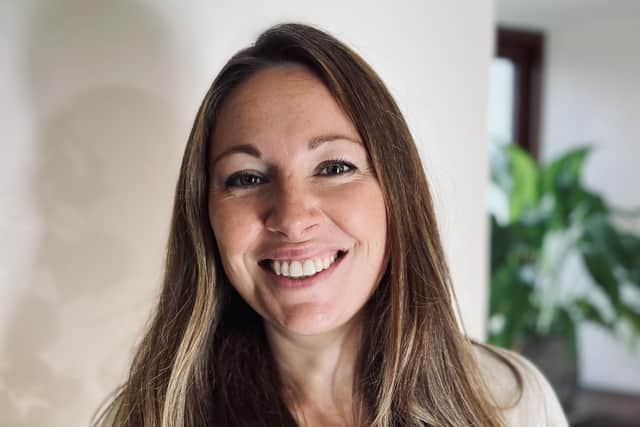Matthew Zajac on Highland new play festival Spark: ‘It’s a little step forward’
The actor and director Matthew Zajac is extemporising a history of theatre in the Highlands and Islands. He begins in the 1970s when he was growing up and remembers a short-lived theatre-in-education company run by the newly opened Eden Court Theatre in Inverness. He mentions Fir Chlis, the first professional Gaelic repertory company, that lasted from 1978 until 1981, and would pave the way for Drama na h-Alba, Tosg and Theatre Gu Leòr. And then there was the alternative arts festival he and his friends set up in Inverness in the 1980s.
“There wasn’t really a professional theatre culture in the Highlands at all when I was growing up,” he says. “Prior to that, I guess there must have been attempts, but I’m not aware of them. But from the mid-1980s onwards, there has been some kind of permanent presence of professional theatremakers – quite a lot of little companies that don’t last very long. There was one called Theatre Highland, for instance, that existed in the 1990s for maybe seven years.”
Advertisement
Hide AdHe lists George Gunn’s Grey Coast, most active in the 1990s, and his own company Dogstar, which launched in 1998 as part of the now defunct Highland Festival and is still going strong. Also come and gone is the agency Hi-Arts that did much to promote culture in the region from 1990 to 2013.
“It’s been a struggle,” says Zajac, namechecking companies such as Out of the Darkness from Elgin and Wildbird from Moray that have survived against the odds. “It’s been very difficult to establish anything. Dogstar has failed to get core funding [from Creative Scotland] every single time it’s had the opportunity to apply for it.”
The reason all this is on Zajac’s mind is his latest venture, Spark: The Highland New Play Festival. Put together by Dogstar with producer Jess Lusk, formerly literary manager at Shakespeare’s Globe in London, it is a long weekend of workshops, readings and scratch performances in Inverness that puts a rare spotlight on voices from or living in the Highlands and Islands. “This festival is an attempt to assert the fact that professional theatre can be made successfully in the Highlands and Islands,” says Zajac. “It’s a little step forward.”
As Zajac sees it, there are two reasons for mounting such a festival now. “There are a growing number of young people, many of whom are coming out of the University of the Highlands and Islands theatre and production course, who are trying to make some kind of career in theatre,” he says. “There are also a number of arts professionals who have moved to the Highlands in the last few years as part of the growth of remote working.”
Dogstar has never had the capacity to offer a formal script-reading service, so the festival is a chance to bring more writers into the fold. “I felt it was time there was something more structured,” says Zajac, who is in negotiations to revive his award-winning one-man play The Tailor of Inverness, about his father’s wartime journey from Poland to Scotland via Communist Russia and Nazi Germany.


The four script-in-hand play readings in the Spark festival include Over The Hills and Far Away by Anna Halas, about traumatised refugees in a war-torn state, and Breakers by Anna Whealing, about LGBTQ+ representation in rural communities.
Advertisement
Hide AdThe scratch sessions will give an airing to eight ideas and extracts on themes ranging from the birth of a black baby in 19th-century Pulteneytown to the prospects for the Royal Mail postal service in rural areas.
“Some of the plays we received are nothing to do with the Highlands, even though they are written by someone living in the Highlands,” says Zajac. “But there are quite a lot related to things like land use and ownership, loneliness, isolation, suicide, the development of renewable energy and the pull of cities for young people.”
Advertisement
Hide AdHaving moved to Golspie during the pandemic, Lusk is particularly alive to these themes. “Really strongly, there’s the sense of belonging and displacement, isolation, mental health and substance abuse,” she says. “There’s a distinct flavour. It’s also lovely to have stuff in Gaelic and Scots.”


Topics to be discussed in the four Speakout Sessions include Scotland’s theatrical languages, how to make a career in the theatre industry and the possibility of international touring. It is all topped off with Ceilidh Sessions on the Friday and Saturday nights, featuring music and spoken word.
In her ten years at Shakespeare’s Globe, Lusk was well accustomed to being sent plays and understands the responsibility she carries. “You feel like you’re holding everybody’s dreams in your hands and they slip through your fingers because you never have an opportunity to do anything with them,” she says. “This feels like a nice opportunity to say, ‘We recognise you, you’re brilliant and we want to do something with your work.’”
The programme could have been much bigger. The four play readings, for example, were whittled down from 12, while there were nearly 30 applications for the eight scratch slots. “The quality was very high,” says Zajac. “There were a number I would have liked to have included in the festival and we just can’t.”
“I was amazed by the number of people who sent plays and how good they were,” says Lusk. “As much as anything, the festival is a networking opportunity. Everybody is so spread apart and the festival is a chance to meet each other and have a chat. I hope that will germinate and people will say, ‘Right, let’s go and do a project on our own.’”
Spark: The Highland New Play Festival, pruduced by Dogstar, Playwrights’ Studio Scotland and Eden Court is at Eden Court, Inverness, 18–21 January.